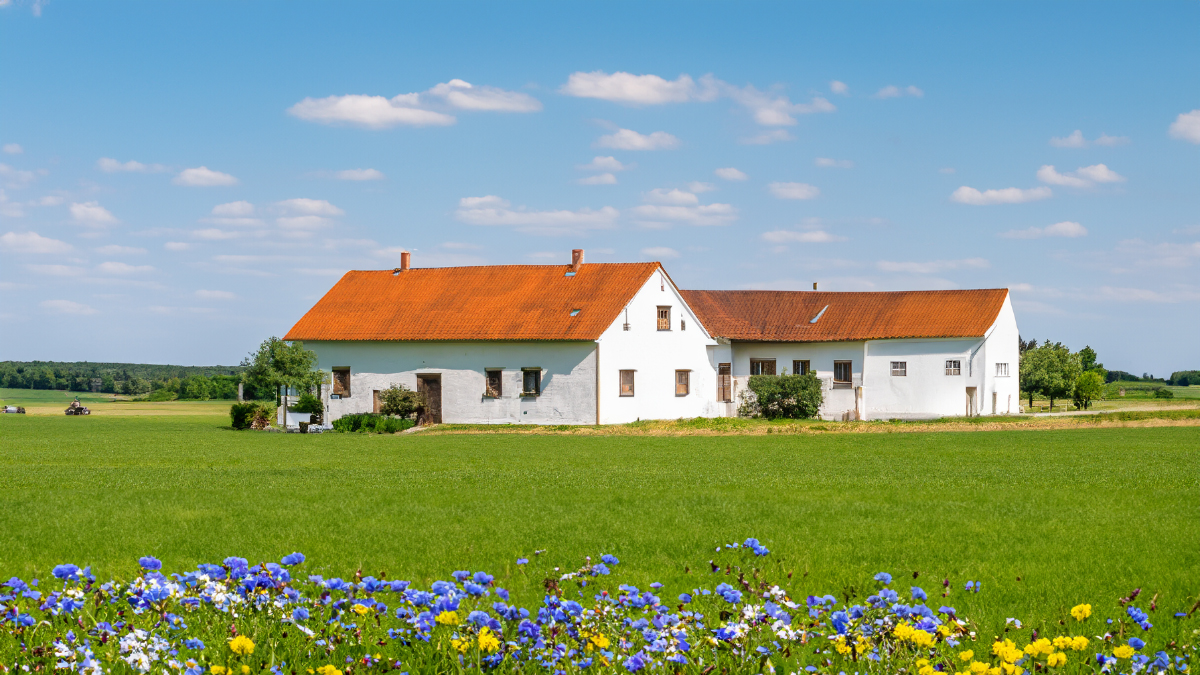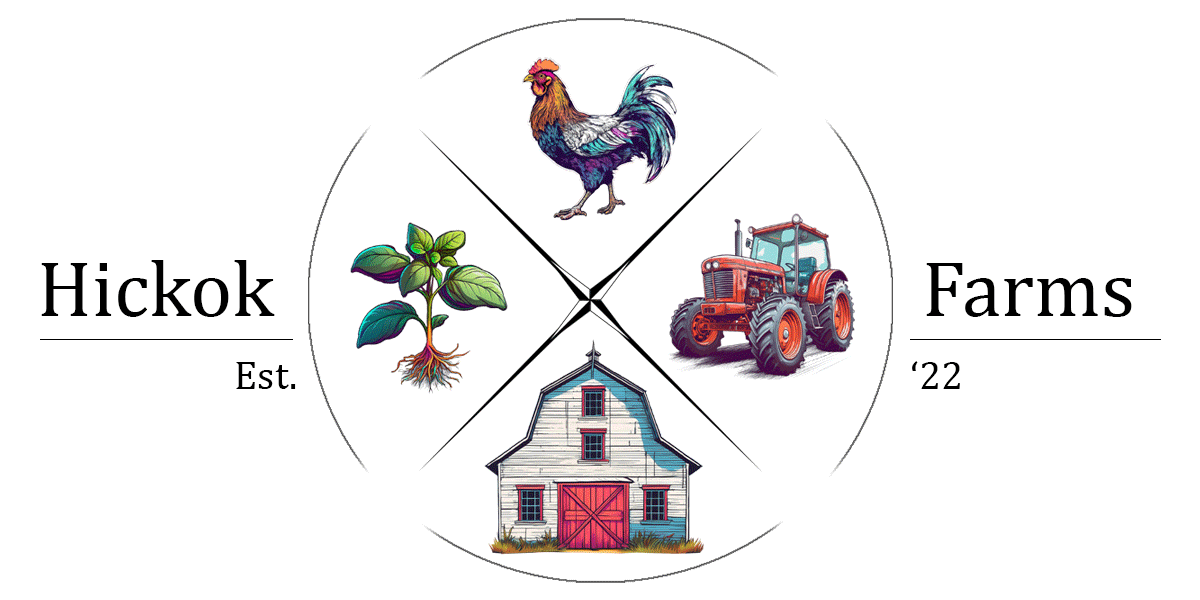
The image is not our farm, its what Adobe Photoshop AI generated as the “perfect farm house on an open landscape with wildflowers in the foreground”. Obviously, whatever the AI was trained on has an interesting bias.
My wife and I bought a 4 acre property with a modern home on it with the intention of starting a hobby farm. Our goals were to increase our food security, self reliance, and maybe sell goods at our local market. In our first year we were able to improve infrastructure, and start selling both chicken eggs, and poultry. This only partially offsets our feed costs, while we continue to strive toward our goals.
We are by no means homesteaders, and don’t try to sell what we do as homesteading.
While it may seem like a glamorous lifestyle, there are a number of reasons that you should not start a farm, or take your retirement and think you’ll live out your days running a market garden, without considering the real side of a small farm. A lot of the deterrents to starting a small farm operation are the same reasons there are less and less small farms in general, high suicide rates among farmers, bankruptcies, and more and more corporate owned mono-cultures on a massive scale.
The margins are slim, the work is hard, the projects can be endless, and if you are starting from scratch you will require a lot of capital to acquire land, a home, and make the necessary improvements to operate a farm. If you don’t have the right kind of foresight, listen to the wrong advice, and don’t plan ahead, you can end up in a pretty hard place. An example would be buying property without adequate irrigation rights or consistent water sources. Becoming reliant on precipitation to make or break your growing season is asking to fail. Trying to grow a crop that isn’t suitable for your growing zone and season length is another great way to lose money and time. Investing in property, then realizing you can’t build on it because you didn’t read your zoning laws begore your purchase, is another stupid move.
The capital requirements don’t start and stop with property. They include the cost of farming equipment, processing equipment, harvesting equipment, food storage, feed costs for animals, irrigating infrastructure, fencing, animal housing, seed costs, fencing, power, and ongoing maintenance. You also need to factor in the time it will take you to be a farmer, and consider that time as an opportunity cost for jobs and money you could have earned with a normal hourly wage or salary.
Beyond labor, there are a number of skills that you really need to have going into starting a farm. At a minimum, you’ll have to have an aptitude for learning a mix of agricultural, mechanical, business, and financial planning skills.
We use three vintage tractors on our small farm, a 50 HP tractor and two 11 HP tractors, as well as a riding mower, a host of power tools, a 3 phase irrigation pump, and many hand tools. We’ve also fabricated many farming implements to improve our productivity and maximize the versatility of our tractors.
All of our tractors and farming equipment combined cost less than the price of a used modern compact tractor that wouldn’t include all of the implements that we use. Our ability to fix non-running vintage tractors and fabricate equipment, allowed us to save a lot of money that others might not be able to save.
There are a lot of influencers and YouTube personalities calling themselves homesteaders, but this seems disingenuous, as many of them have alternative sources of income, and they are essentially hobbyists that work normal job that sustains the ‘lifestyle’ while they transition to becoming content creators. I work from home and watch my 19 month old daughter, and my wife is a nurse that works a normal work week like. Our combined incomes cover our life expenses, modest lifestyle, help us to contribute to savings and investments, and allows us to build our farm with the goals of food security, and an opportunity to sell goods and produce.
Things that really irk me are the influencers that are operating ten-thousand dollars worth of plasma cutters, welders, and consumables, just to poke holes in a two-thousand dollar shipping container to call a home. We see them moving equipment around with a forty thousand dollar skid steer at the same time they are dry pouring concrete, because they can’t be bothered to properly mix and poor concrete, or more ironically, a cement mixer rental or purchase isn’t within their budget. The economics of equipment costs, or transparency about access to tools and equipment that would cost hundreds or thousands of dollars a day to rent, don’t add up for me if they were indeed the humble homesteaders they purport to be.
Some influencers may be more genuine than others, and there are some great social media channels that I happen to really like, but a lack of transparency exists for most of these internet personalities, the advice many share is bad and even dangerous, and the lifestyle is just an excuse to produce YouTube content and earn internet revenue by becoming shills for any brand that offers them a dollar to push razors, beverages, VPNs, and courses.
I don’t want to discourage anybody from starting a small farm, pursuing food security, or even profits. I just want to encourage everyone considering starting a small farm or homestead to take the influencers with a hefty grain of salt, get financial advice and planning help ahead of time, and while we love our lifestyle, we also hope you will consider the time and energy commitments that a small farm requires and if that is the reality of the lifestyle that you want.
